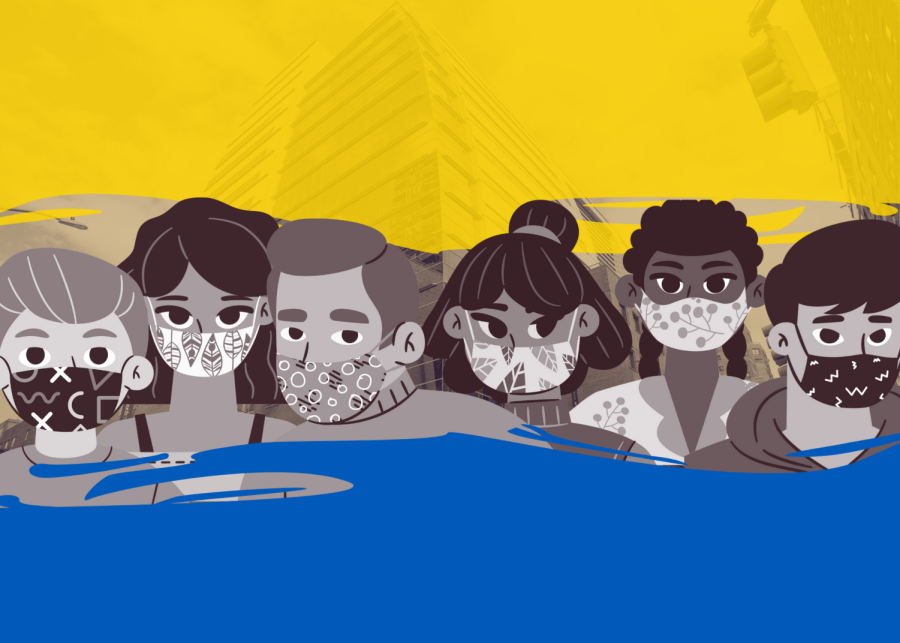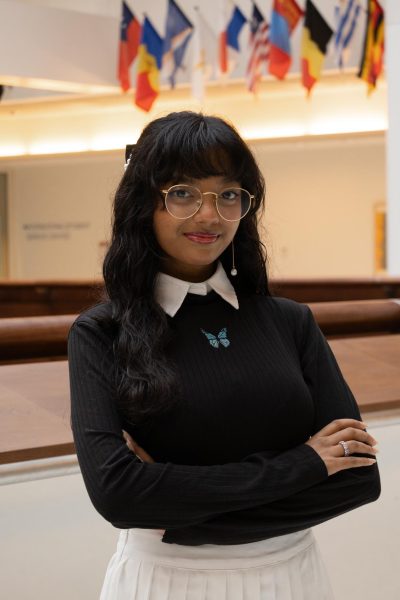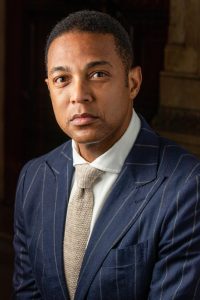Russo-Ukrainian war affects college students abroad and at home
March 18, 2022
Russian forces began an invasion of Ukraine on Feb. 24, following weeks of a military build-up that began in March 2021.
At least 579 civilians have been killed in the conflict since the start of the war and more than 1,000 have been injured, according to a report by the United Nations.
In a statement on Feb. 28, CUNY Chancellor Félix Matos Rodríguez condemned, “Russia’s unprovoked invasion of Ukraine, a sovereign neighboring state whose citizens are committed to building a stable democratic society.”
He noted that New York City is home to the largest Ukrainian community in the nation.
“Our hearts and prayers are with the Ukrainian people and with CUNY students, faculty and staff who are personally impacted by the devastating and revolting aggression,” Matos Rodríguez said.
The invasion has caused a refugee crisis, with at least one million Ukrainians fleeing to Poland, Slovakia, Moldova and Hungary. It has greatly affected the studies of Ukrainian students in higher education due to the declaration of martial law.
It is too early to foresee the effects of a brain drain, according to Romeo Kokriatski of the podcast “Ukraine with Hype.” In an interview with The Ticker, he said Ukrainian students intending to continue their studies have been forced to go abroad.
This includes about 76,000 students of foreign origin, many of whom have faced difficulties fleeing Ukraine due to a combination of them not fitting the categories of “women, children, elderly and the disabled,” and societal racist attitudes towards South Asians and Africans.
“Russian propaganda has been good at playing up the masses of Syrian refugees invading Europe,” Kokriatski said.
In Russia, students who have participated in protests have been expelled from their schools and many have reported that police brutalized them during crackdowns.
Even with the growing number of protests in Russia, Kokriatski said that they are unlikely to gain popularity due to the majority of Russians supporting the “special military operation in Ukraine.”
He cited a poll conducted by research group Russian Field that showed over 50% of Russians support the war and historical attitudes.
“Russians tend to have an imperial mindset, going from the very top to the very low,” Kokriatski said. “And they see it as their right to rule over the ‘lesser Slavs’ — Ukrainians and Belarusians — basically.”
In the wake of Russia’s invasion, many colleges across the United States have been terminating their ties with Russian institutions. This has forced Russian students in study abroad programs to return home.
When asked if the academic boycotts could approach that on a scale not seen since South Africa under apartheid, Kokriatski expressed “hope that [the] academic world would realize that supporting or cooperating with a state that is engaged in the wholesale slaughter of civilians is not a good look.”
He said he expects that the disinvestment and boycotts of Russian academic institutions will only intensify if the war continues.
There has also been a heavy disinformation campaign by the Russian government to those abroad, Kokriatski said. He brought up the example of Redfish Media, a Kremlin-backed media outlet that has spread disinformation.
He advised students “who have grown with a more left-wing outlook” to check their sources when gathering news on the conflict. He also recommended bilingual and polyglot students in Ukrainian, Russian or English help translators counter the flow of disinformation.
CUNY students of Ukrainian, Russian or Belarusian origin have also been greatly affected by the war, according to a survey by The Ticker.
Tetiana Khomenko, a Baruch College junior of Ukrainian origin, said that a friend and their family survived on “1 egg to eat for the day, some water to drink” during the Russian bombardment.
They know people who have been killed and have friends and family still trapped in Kyiv.
“It is already dangerous to leave,” Khomenko said.
She also expressed fears that the conflict could escalate.
“I don’t care about the architecture now,” Khomenko said. “Only the lives matter and for Russian army there is no rules at all.








